Yanhui Tu
The USTC-NERCSLIP Systems for the CHiME-8 NOTSOFAR-1 Challenge
Sep 03, 2024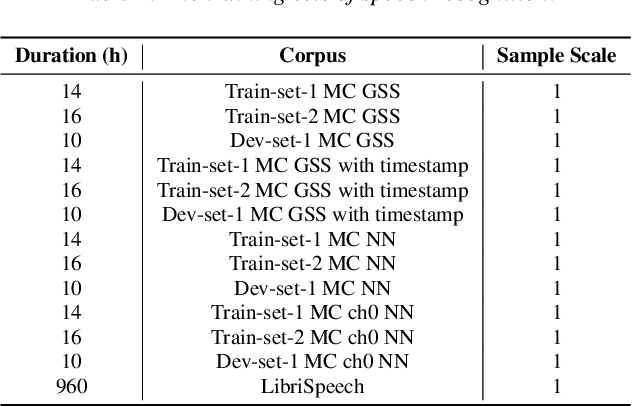
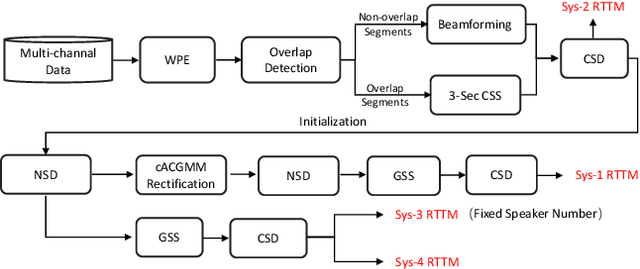
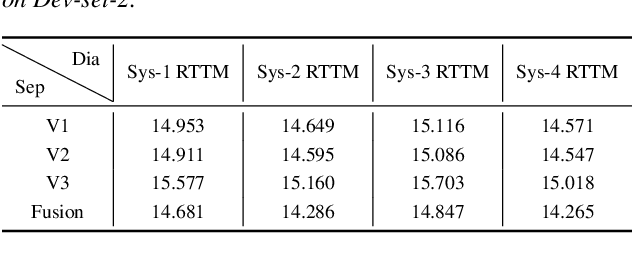
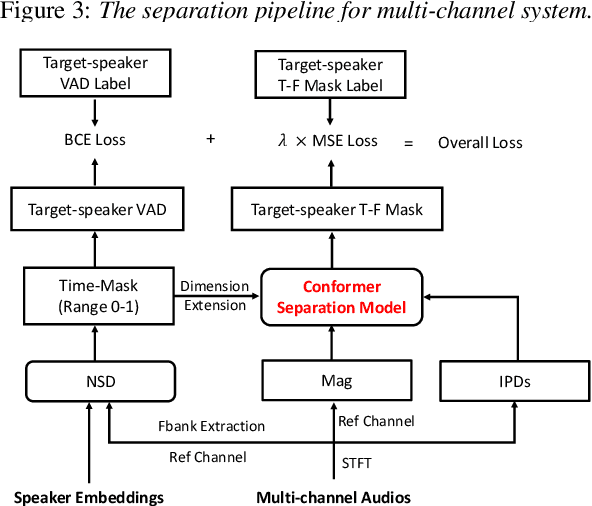
Abstract:This technical report outlines our submission system for the CHiME-8 NOTSOFAR-1 Challenge. The primary difficulty of this challenge is the dataset recorded across various conference rooms, which captures real-world complexities such as high overlap rates, background noises, a variable number of speakers, and natural conversation styles. To address these issues, we optimized the system in several aspects: For front-end speech signal processing, we introduced a data-driven joint training method for diarization and separation (JDS) to enhance audio quality. Additionally, we also integrated traditional guided source separation (GSS) for multi-channel track to provide complementary information for the JDS. For back-end speech recognition, we enhanced Whisper with WavLM, ConvNeXt, and Transformer innovations, applying multi-task training and Noise KLD augmentation, to significantly advance ASR robustness and accuracy. Our system attained a Time-Constrained minimum Permutation Word Error Rate (tcpWER) of 14.265% and 22.989% on the CHiME-8 NOTSOFAR-1 Dev-set-2 multi-channel and single-channel tracks, respectively.
The USTC-NERCSLIP Systems for the CHiME-7 DASR Challenge
Aug 28, 2023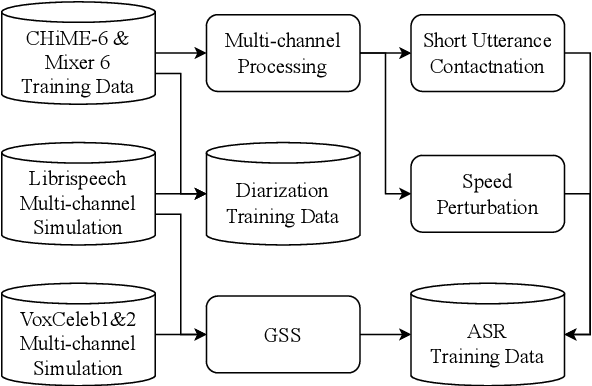

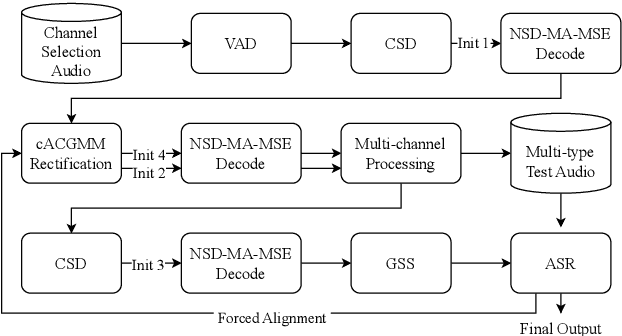

Abstract:This technical report details our submission system to the CHiME-7 DASR Challenge, which focuses on speaker diarization and speech recognition under complex multi-speaker settings. Additionally, it also evaluates the efficiency of systems in handling diverse array devices. To address these issues, we implemented an end-to-end speaker diarization system and introduced a rectification strategy based on multi-channel spatial information. This approach significantly diminished the word error rates (WER). In terms of recognition, we utilized publicly available pre-trained models as the foundational models to train our end-to-end speech recognition models. Our system attained a macro-averaged diarization-attributed WER (DA-WER) of 22.4\% on the CHiME-7 development set, which signifies a relative improvement of 52.5\% over the official baseline system.
 Add to Chrome
Add to Chrome Add to Firefox
Add to Firefox Add to Edge
Add to Edge